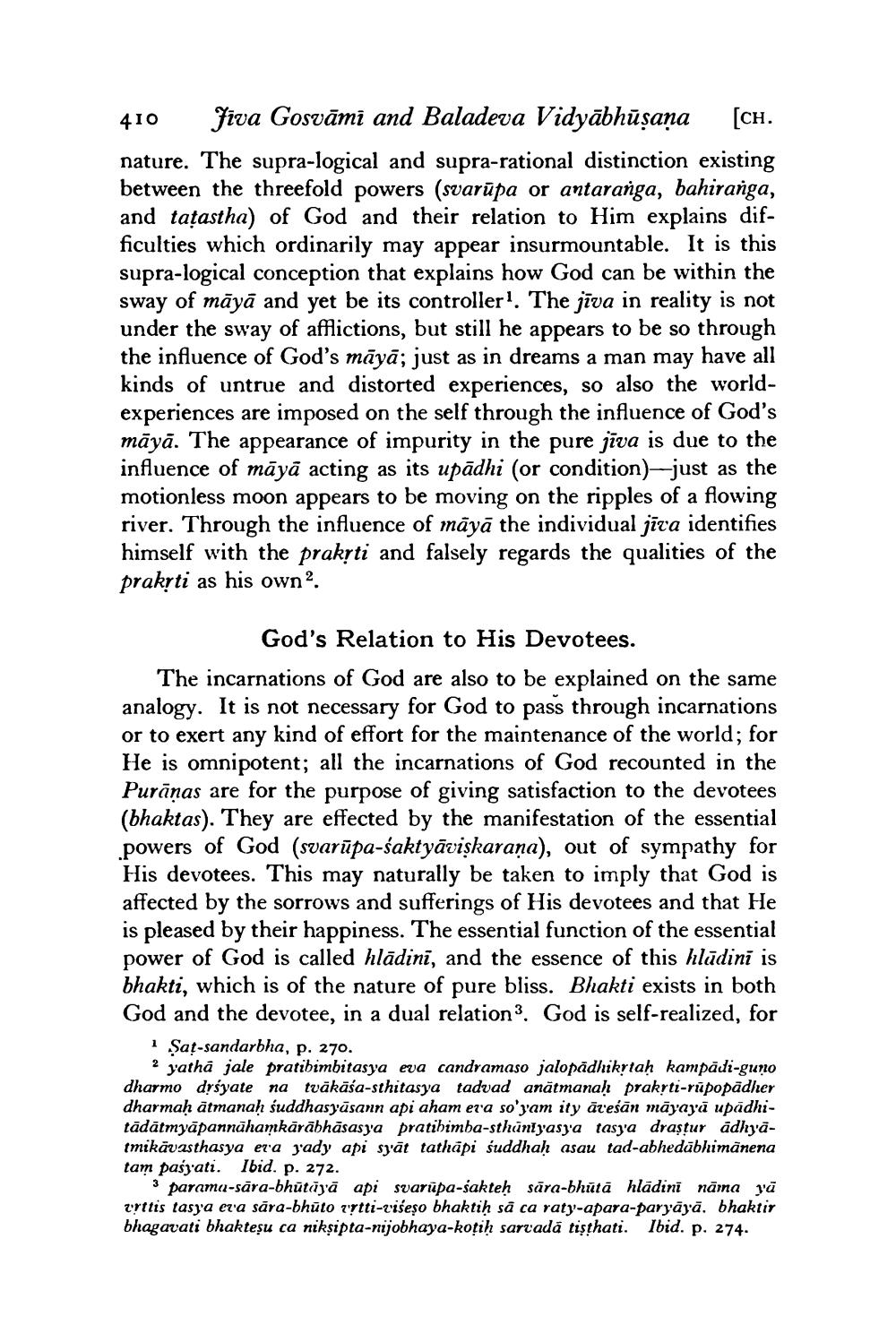________________
410 Jiva Gosvāmi and Baladeva Vidyābhūsana [CH. nature. The supra-logical and supra-rational distinction existing between the threefold powers (svarūpa or antaranga, bahiranga, and taţastha) of God and their relation to Him explains difficulties which ordinarily may appear insurmountable. It is this supra-logical conception that explains how God can be within the sway of māyā and yet be its controller". The jīva in reality is not under the sway of afflictions, but still he appears to be so through the influence of God's māyā; just as in dreams a man may have all kinds of untrue and distorted experiences, so also the worldexperiences are imposed on the self through the influence of God's māyā. The appearance of impurity in the pure jīva is due to the influence of māyā acting as its upādhi (or condition)-just as the motionless moon appears to be moving on the ripples of a flowing river. Through the influence of māyā the individual jīra identifies himself with the prakrti and falsely regards the qualities of the prakrti as his own?.
God's Relation to His Devotees. The incarnations of God are also to be explained on the same analogy. It is not necessary for God to pass through incarnations or to exert any kind of effort for the maintenance of the world; for He is omnipotent; all the incarnations of God recounted in the Purāņas are for the purpose of giving satisfaction to the devotees (bhaktas). They are effected by the manifestation of the essential .powers of God (svarūpa-śaktyāviskaraña), out of sympathy for His devotees. This may naturally be taken to imply that God is affected by the sorrows and sufferings of His devotees and that He is pleased by their happiness. The essential function of the essential power of God is called hlādini, and the essence of this hlūdini is bhakti, which is of the nature of pure bliss. Bhakti exists in both God and the devotee, in a dual relation]. God is self-realized, for
Șat-sandarbha, p. 270. ? yatha jale pratibimbitasya eva candramaso jalopādhikrtah kampadi-guno dharmo drsyate na tvākāśa-sthitasya tadvad anātmanah prakrti-rūpopādher dharmaḥ ātmanaḥ śuddhasyāsann api aham era so'yam ity āteśān māyayā upādhitādātmyāpannāhamkārābhāsasya pratihimba-sthuniyasya tasya draştur adhyaimikāvzsthasya eta jady api syāt tathāpi suddhah asau tad-abhedābhimanena tam paśyati. Ibid. p. 272.
3 parama-sāra-bhūtāyā api svarūpa-sakteh sāra-bhūtā hladini nama ya vrttis tasya eta sāra-bhūto vytti-višeşo bhaktih sa ca raty-apara-paryāyā. bhaktir bhagavati bhakteșu ca niksipta-nijobhaya-koțih sarvadá tisthati. Ibid. p. 274.




